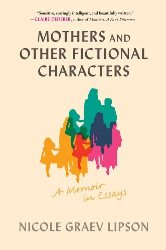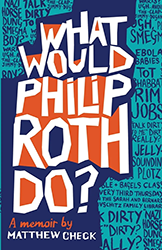For anyone who seeks to deepen their understanding of the many facets of Roth’s career, this collection of Philip Roth’s essential essays, literary criticism, and interviews from over half a century — including a few recent reflections published here for the first time — provides a rich and illuminating counterpoint to the fiction itself. Roth scholars will recognize the well-known essays and interviews from the 1960s through the early 80s, the pronouncements that reveal Roth as a superbly attuned reader of his own controversial early stories and novels (like “Defender of the Faith” and Portnoy). For those readers who want to learn how Roth responded to the criticisms hurled by the guardians of Jewish middle-class sensibility in the late 50s and early 60s, the essay “Writing about Jews” remains required reading. In this scorching 1963 response to his critics, Roth announces — perhaps discovers — the themes that would occupy him in the 60s and beyond. “I had told the Gentiles what apparently it would otherwise have been possible to keep secret from them: that the perils of human nature afflict the members of our minority.”
Fittingly, Why Write? opens with the famous story, “‘I Always Wanted You to Admire My Fasting’; or Looking at Kafka,” written in 1973. The placing of this story indicates how deeply Kafka’s complex feelings about Jewish life and history, his vexed relation to the “fathers” (above all his own), his habit of self-evisceration, and his long struggles in romantic love, resonate with the core themes in the Roth fictional canon. In a conversation also included in Why Write?, I. B. Singer observes that Roth and Kafka possess “an affinity of souls.”
In addition to reprinting Roth’s crucial literary-cultural criticism (above all “Writing American Fiction” [1i 960], which needs to be reread in the Age of Trump), the volume includes Roth’s key Paris Review interview with the British critic Hermione Lee, which draws its energy and verve from Roth’s frequent sojourns in London: “I don’t hate anything here … What bliss‐but for the writing that’s no asset. Nothing drives me crazy here, and a writer has to be driven crazy to help him to see.” Another superb interview reprinted here is Roth’s 1981 conversation with the French philosopher Alain Finkielkraut in Le Nouvel Observateur. In it Roth deepens the Kafka connections (“I was eager to find out what the rest of ‘America’ was like. America in quotes — because it was still almost as much of an idea in my mind as it had been in Franz Kafka’s.”). And in response to a question frequently asked of him, concerning the autobiographical dimension of his fiction, Roth says to Finkielkraut, perhaps with a sly evasive smile: “Am I Lonoff? [from The Ghost Writer] Am I Zuckerman? Am I Portnoy? I could be, I suppose. I may be yet. As of now I am nothing like so sharply delineated as a character in a book. I am still amorphous Roth.”
Why Write? also includes Roth’s important conversations with key writers (Singer, Aharon Appelfeld, and Primo Levi as well as the Czech writers Milan Kundera and Ivan Klíma), previously printed in his book Shop Talk: A Writer and His Colleagues and Their Work. Viewed together, these conversations chart the literary-cultural political genealogies that have shaped Roth’s own work. They also deepen our recognition of his supreme importance on the world literary stage, above all in helping writers under the thrall of totalitarian regimes to find publication in the West.
As for the newly published materials, perhaps the most moving is Roth’s 1992 speech accepting the New Jersey Historical Society Award for Patrimony, his profound memoir of his father’s fatal illness and his own relation to Jewish generations. Speaking of his father, he said: “To negotiate from the middle, between the impositions of the past, as embodied in the customs and values of his Yiddish-speaking parents, and the claims of the future, as articulated in their very bearing by the American children, became not only his task but the endeavor of his entire generation of immigrant offspring.”
In many ways the raw energy produced by the immigrant encounter with America has been Roth’s subject, his passion, his inspiration. This final Roth volume in the Library of America series confirms Philip Roth as our greatest living novelist, as it gathers virtually all of his most important reflections and engagements with his critics, and, more importantly, with his serious readers, who will now have Roth’s rich archive of literary and cultural criticism in a single, indispensable volume.
Donald Weber writes about Jewish American literature and popular culture. He divides his time between Brooklyn and Mohegan Lake, NY.




